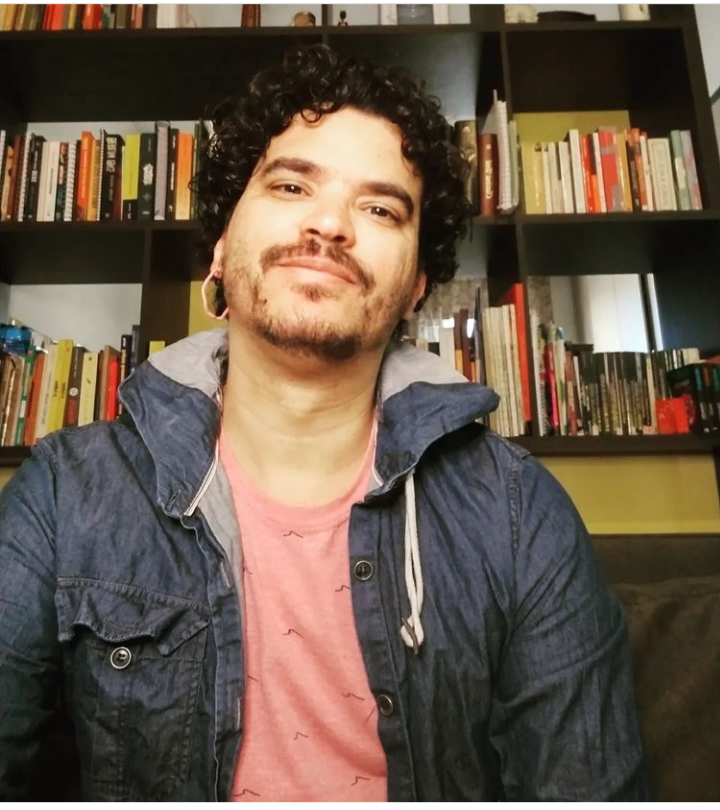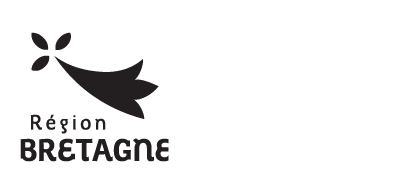Daniel Manzoni de Almeida, working on public health and science education

Daniel Manzoni de Almeida is a researcher with an interdisciplinary background, who is beginning his project “HETEaching” at the CREAD lab at the University of Western Brittany in January 2022. He is working on science didactics and vaccination.
[BIENVENÜE team]: What did you do until now? How did you become interested in your research themes?
[Daniel Manzoni de Almeida] I have an interdisciplinary academic background in Science and Humanities. In Brazil I was a university professor and researcher in the area of health, especially Immunology and its teaching methods. Since childhood I have been motivated because I live in a multicultural and diverse world, as I am a homosexual, the child of immigrants and I studied through the opportunities of public policies that existed in my country to encourage Education and Science. In other words, I have the experience of what it is like to live in a world where social inequalities are present and I am aware of my social responsibility for the importance of multiculturalism in education and science.
Thus, I understand that valuing the diversity of bodies and minds is a very important path for healthy human development in the world. Since then, I have tried to somehow associate the issues of diversity and inclusion of people with health issues. My professional challenge is to include people and diverse ideas through engagement in scientific culture.
Can you explain in a few words the HETEaching – Health Education Teaching – project?
There is a very serious issue in the world which is vaccination and public health. Vaccines save lives and vaccination is a political and citizen act of collective health and requires a very important education process. With the COVID-19 pandemic, the issue became even more in evidence. Covid is the disease that distanced us from living in public spaces around the world. Vaccination is the only way to allow us to safely meet again and get back to normal. Every day we are being invaded by waves of false news and vaccines cannot escape it.
Added to this, the movement of people who are against vaccination has grown around the world. This is very worrying, as we know that due to vaccination programs various types of disease were controlled around the world and eradicated, for example, smallpox that killed millions of people in the Middle Ages. However, with the anti-vaccine movement, some diseases reappeared in the world. We will only be able to overcome the covid-19 pandemic through vaccination and scientific education for the population that can place society in constant participation in scientific debates and an understanding of the importance of science in everyday democratic decision-making. So, our question was: how can we, through scientific education, understand and work to engage the population in vaccination?
Thus, HETEaching aims to build a science education model for this understanding and decision-making to engage in vaccination through the training of basic education teachers. In our project, we are going to work with the training of teachers and students in schools in Brest, based on their realities, with the theme of vaccination in their classes. We hope to understand how the scientific knowledge of students and professors about vaccines is and how this knowledge can be leveraged so that it can be disseminated and strengthen the population’s engagement in vaccination. It is a project that combines science, education, politics and human development.
Why did you choose to come to Brittany?
Prof. Patricia Marzin-Janvier and I have been collaborating for nearly 10 years in scientific collaboration, jointly publishing articles, projects and thesis supervision. It has been a few years since Profa Patricia became a full professor of Biology Teaching at CREAD-UBO and I wanted to come and live in France, approaching and enhancing our work in science education. Thus, the opportunity of the BIENVENÜE program helped to materialize this desire of working with French teacher education, building scientific knowledge in Brittany. I believe that my experience and our project can significantly contribute to the expected development of the region.
What is your motivation in your research?
What motivates me in my research is the possibility of changing the realities of places and people through education and science. My biggest interest is working with diversity, multiculturalism and inclusion of people, their ideas through scientific culture to improve health in the world. I believe that efficient human development can be given when we understand, we work with all the potential of diversity, cultures of people in the world. The world is diverse and this is a potential that must be respected for a more democratic, conscious and healthier society.
Do you have a recommendation for a reader curious to know more your research themes?
The theme of HETEachi is an Immunology Teaching aimed at society in general, that is, a scientific education for the exercise of citizenship. In recent years we have been working towards this goal. Thus, those interested can access an ebook that we produced this year in Brazil. It is a bilingual (Portuguese and English) immunology teaching ebook, “Immunology in the classroom: teaching sequences” that contains several proposals for teaching sequences with this theme. This book was born from the compositions of the ideas of professors and researchers in immunology, in a democratic and creative way, for their classes.
The ebook can be found on the “International Union of Immunological Societies” (IUIS) and “Editora na Raiz” pages (Brazil).
I also recommend reading Paulo Freire‘s works are essential to understand the educational and philosophical basis – the critical pedagogy – of our project “Pedagogy of the Oppressed” (1968) and “Pedagogy of freedom” (1996). Paulo Freire was a Brazilian thinker who built his entire work aimed at a humanitarian, critical education, for the development of students’ autonomy of thought, liberating, with value in human diversity and centered on the full development of citizenship. I am the result of the principles of an education structured in the thought of Paulo Freire.
Thank you Daniel!
